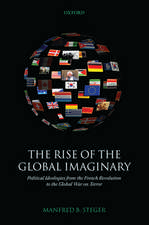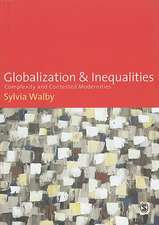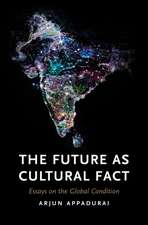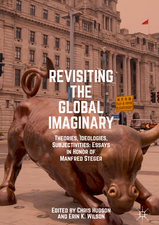Justice Globalism: Ideology, Crises, Policy
Autor Manfred B. Steger, James Goodman, Erin K. Wilsonen Limba Engleză Paperback – 17 dec 2012
Justice Globalism will prove a stimulating read for undergraduate and graduate students in the social sciences and humanities who are taking courses on globalization, global studies and global justice.
Preț: 410.56 lei
Nou
78.56€ • 82.02$ • 65.02£
Carte tipărită la comandă
Livrare economică 05-19 aprilie
Specificații
ISBN-10: 1446240916
Pagini: 184
Dimensiuni: 170 x 242 x 10 mm
Greutate: 0.32 kg
Ediția:First Edition
Editura: SAGE Publications
Colecția Sage Publications Ltd
Locul publicării:London, United Kingdom
Recenzii
The book gives an excellent overview of the values, motives and political strategies of the global justice movement. It is a very timely book and a particularly valuable contribution to the academic debate on global justice as it takes it one step further by including the actual, political work on justice beyond the state into academic research on the topic. It will therefore be of interest to activists and scholars alike and an interesting read to graduate students interested in globalisation studies, transnational social movements and IPT (International Political Theory).
Justice Globalism could easily be used by academics in courses on globalization in programs ranging from Geography or Gender Studies to Economics or Anthropology, and would serve as a great primer for early career activists. In this way, its clear organization is very helpful. For the GJM organizations the authors studied and others, this book should serve as a valuable tool for understanding their movement and for building coalitions based on the ideas presented. This book does what many of us hope to do with our work, create a resource for academics, activists, and everyone in between.
Cuprins
Justice Globalism and Global Crises
Justice Globalism: Core Concepts
Justice Globalism: Core Ideological Claims
Responding to Global Crises: From Core Concepts to Policy Alternatives
Justice Globalism and the Global Financial Crisis
Justice Globalism and the Global Food Crisis
Climate Crisis and Justice Globalism
Conclusion
Descriere
Are political activists connected to the global justice movement simplistically opposed to neoliberal globalization? Is their political vision 'incoherent' and their policy proposals 'naïve' and 'superficial' as is often claimed by the mainstream media? Drawing on dozens of interviews and rich textual analyses involving nearly fifty global justice organizations linked to the World Social Forum, the authors of this pioneering study challenge this prevailing view. They present a compelling case that the global justice movement has actually fashioned a new political ideology with global reach: 'justice globalism'. Far from being incoherent, justice globalism possesses a rich and nuanced set of core concepts and powerful ideological claims. The book investigates how justice globalists respond to global financial crises, to escalating climate change, and to the global food crisis. It finds justice globalism generating new political agendas and campaigns to address these pressing problems. Justice globalism, the book concludes, has much to contribute to solving the serious global challenges of the 21st century.
Justice Globalism will prove a stimulating read for undergraduate and graduate students in the social sciences and humanities who are taking courses on globalization, global studies and global justice.




















